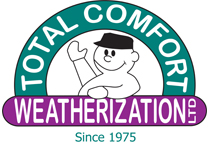In January 2024, 27 members of a City Council appointed Task Force began discussion of more than 40 options to raise the revenue necessary to fund services that do not have a dedicated revenue stream. At their final meeting in June 2024, the Task Force unanimously agreed to present eight options to City Council. Four members of the Task Force; Becky Beaman, Russ Beaton, Scott Cantonwine, and TJ Sullivan presented the recommendations to City Council Monday, July 15.
Early in the process, the Taskforce identified key considerations that they used to evaluate revenue options including;
- Equity – consider impacts to lower income community members,
- Sustainability – work toward a long-term solution,
- Sequencing – consider near term options that could provide a bridge to long term solutions,
- Minimizing Local Economic Impact – take a thoughtful approach to burdens placed on the business community,
- Financial Management – share accounting practices and audits, build trust and address skepticism, and
- Public Input and Education– bring the community along, create a transparent and inclusive process.
The Task Force members were unified in their commitment to do what was right for the City of Salem. The Task Force represented a wide range of perspectives and opinions on the right approach to addressing the revenue challenges. Ultimately, they agreed that their recommendations represented a solid menu of options that give City Council a variety of paths to take forward. They were clear that it is now up to City Council to determine what is politically feasible and right for the City of Salem.
The Task Force revenue options list includes (see full Task Force Report for details):
Near-term (1-2 years):
- business license fees
- franchise fee increase
- increase to urban renewal frozen base
Medium-term (2-5 years):
- local option property tax levy
- personal income tax
Long-term:
- payment in lieu of taxes
- intergovernmental agreements and entities
- tax reform/restructuring
City Council will discuss the Task Force recommendations at a work session on Monday, August 19 at 6 p.m. in Council Chambers.
We are committed to supporting the leadership and authority of the current and future City Council members and will work to ensure that everyone has clear, consistent and accurate information as we proceed through this process.
Background
The City of Salem budget problem is the result of a structural imbalance where our expenses are growing faster than revenues. The City does not have the revenue to pay for expenses in key service areas.
This revenue problem impacts the General Fund –police, fire, parks, libraries, code enforcement, court, and services for our most vulnerable populations including elders, youth, low-income and homeless community members.
Our general fund has a systemic imbalance because our property tax system is broken. The impact of tax limitation Measures 5 and 50, approved by voters in the 1990s, has continued to increase over time. The enduring impact of these measures is that they limited the growth of the taxable value of property and set permanent tax rates that limit revenue collections.
The City of Salem cannot increase property taxes to keep pace with population growth and escalating costs. Property taxes make up 50% of Salem’s General Fund revenues. The property taxes collected only pay for 77 % of Police and Fire services. The greatest portion of costs associated with police, fire, parks, libraries, and services to our most vulnerable populations including elders, youth, low-income and unsheltered community members are due to staffing.
Without a revenue source that keeps pace with escalating costs, we cannot continue to deliver services at the same level. In fact, service levels have already been reduced in response to growing demands and limited revenues.








